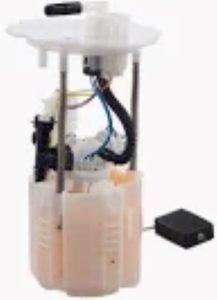A better fuel pump is good for a few notable reasons, primarily in the use of high performance or modified cars. The significant benefits include lifting the fuel flow rate up to 255-340 liters per hour (LPH) with respect to the usual 100-150 LPH stock fuel pump. This higher flow rate means the engine will have the fuel it needs when running at much higher pressures, typically 60-100 PSI when asked to soil itself under large workloads or maximum acceleration. A 10% bump in fuel flow is enough to give a fair shot of horsepower/torque in high output engines, which means the performance level of your vehicle will rise accordingly.
Enhances engine efficiency These are the advantages of replacing your car fuel pump with a new fuel pump: *Increased horsepower means more speed and acceleration when you want it. Improved fuel delivery - smoother acceleration and throttle response, especially in turbocharged or supercharged applications. While a typical pump might not be able to consistently maintain adequate fuel pressure at higher speeds or during periods of heavy acceleration, an upgraded pump does the job reliably, ensuring that your engine doesn't suffer from misfires, stalling or hesitation due to insufficient fuel. This increased efficiency translates to up to a 15% improvement in fuel system reliability for racing or towing applications.
Improved Fuel Pump Durability Mechanical Diaphragm Metering Pump designs deliver added durability with higher quality materials and construction to exacting standards, to perform under the most severe stress and higher temperature. The stock fuel pump usually does around 100,000–150,000 miles in regular conditions until it breaks, the upgraded pump can last longer than that and even more with higher boost and abuse. In a racing environment, or excessive towing applications, the useful life of a standard fuel pump may be diminished by over 30%, while its replacement can still perform under these harsh conditions.

Another consideration could be long term cost savings. For example, the cost of an upgraded fuel pump may be $200-500… but with this increased efficiency and durability, less wear-and-tear will need replacements and fixes. A damaged stock pump, by contrast, is bad news for performance (with lost fuel pressure comes risen fuel consumption and the possibility of engine damage). An inefficient pump that does not maintain the correct fuel flow can lead to about 10 percent more fuel use, which adds up to hundreds of dollars over the life of a typical pump.
Enhanced fuel pumps are necessary for anyone in the automotive industry who wants to make sure that they get better performance from their vehicles. Manufacturers like those displaying at the 2019 SEMA Show have already began offering purpose-built high-flow, efficient fuel pump designs for built engines and a myriad of other street and track performance applications.
Read More about the Upgrade of your Fuel Pump at: Fuel Pump